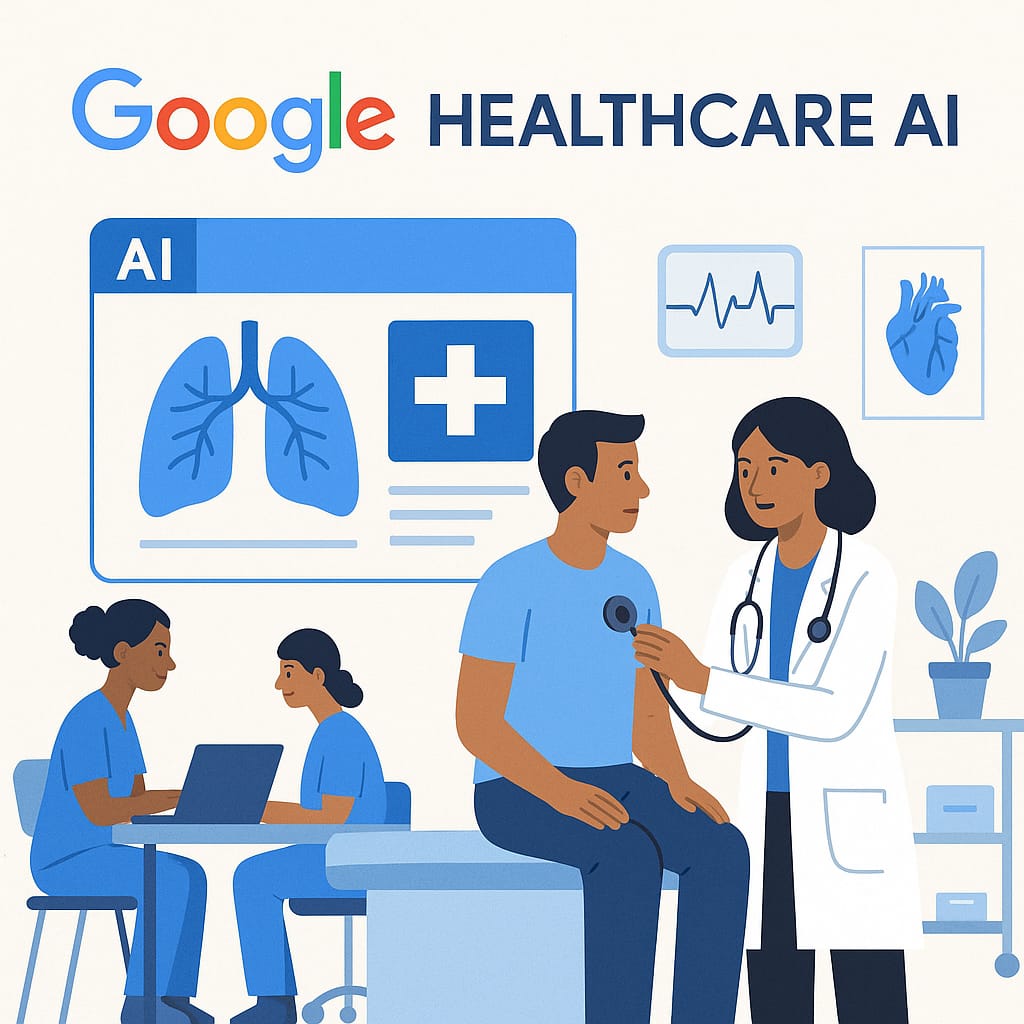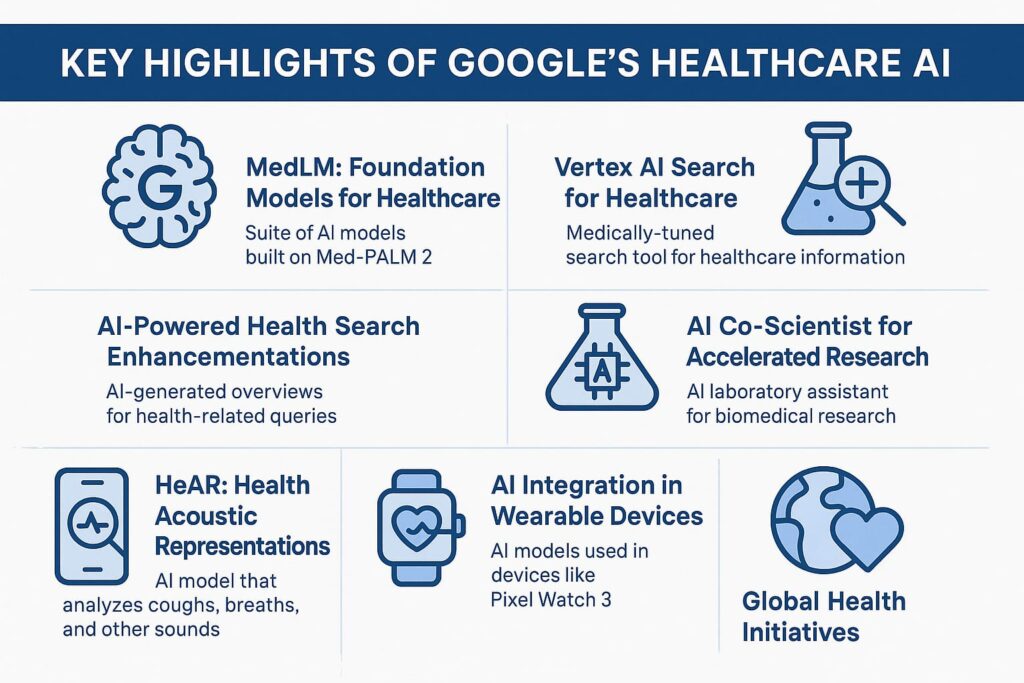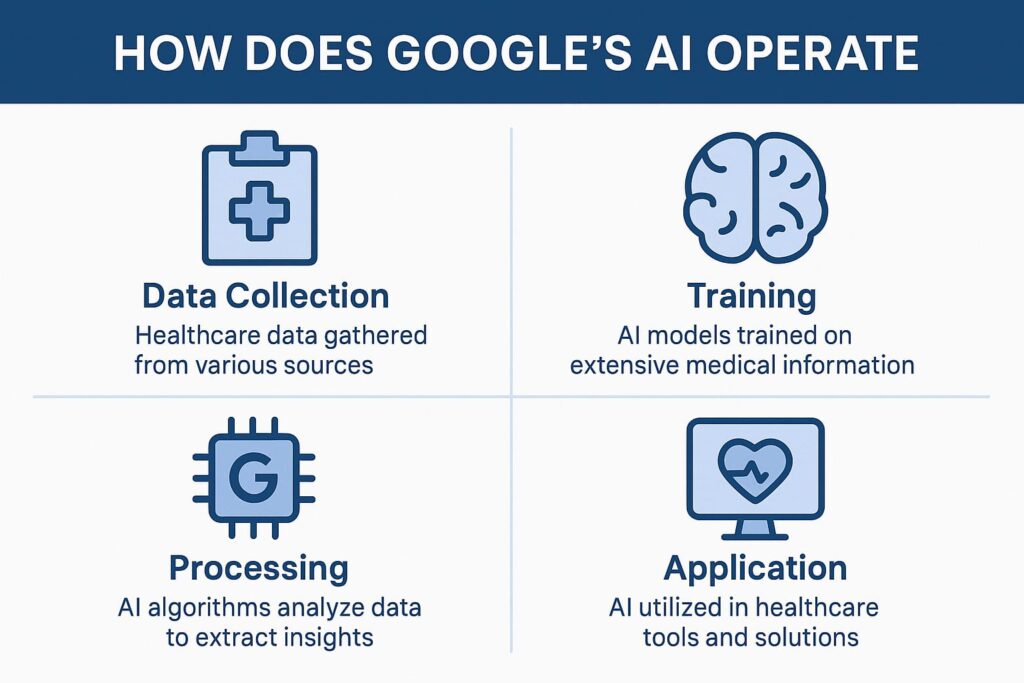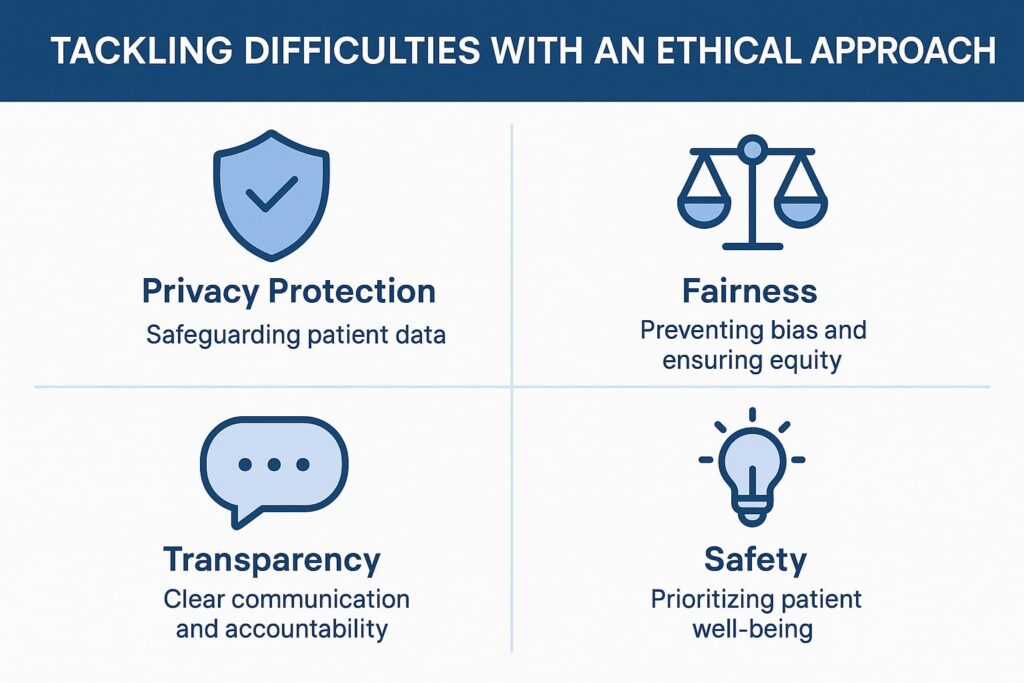
Introduction:
We’re discussing Google’s Health-Care AI now, aren’t we? ” With the power of artificial intelligence, Google aims to revolutionise the field of medical science by making it easier to solve complex problems.” So what stands out is Google’s Healthcare AI. Artificial intelligence largely influences the significant digital transformation of the healthcare sector, which is slowly advancing into a new era. This new healthcare service from Google has played a significant role in solving the medical problems of these patients and providing them with cutting-edge services. The technology enables doctors to deliver superior patient care through investigations of improved treatment methods. The following discussion explores how Google’s revolutionary technology will revolutionise the healthcare industry.
Importance of Google’s AI in Healthcare Sector
Google’s healthcare AI is changing the treatment style by using AI technologies, which makes it a game-changer in the healthcare sector. It uses technologies like ‘DeepMind’ and ‘Google Cloud Healthcare’ to give doctors quick and easy access to patient data. With the help of Machine Learning (ML), Natural Language Processing (NLP), and Big Data, it facilitates doctors with smart & fast decisions. The result? Better treatment, better care, and a stronger healthcare system
This AI focuses on enhancing many areas of health care, from precise diagnoses to customised medical care. From helping radiologists diagnose more diseases to providing researchers with useful insights from complex datasets, Google’s AI solutions improve the efficiency and effectiveness in the healthcare sector.
Key Highlights of Google’s Healthcare AI
Let’s see in which areas Google’s healthcare services have been implemented.

- Medical Image Analysis: For identifying critical conditions like tumours, fractures, or infections, Google’s AI uses classy tools like MRI and X-ray, which are integrated with AI technology. This feature helps physicians/doctors to identify patients accurately and treat them appropriately.
- Analytical Healthcare Insights: Google’s AI can analyze detailed patient data and predict future health problems.
- Data Generalisation with NLP: Google’s AI utilises natural language processing to analyse unstructured data, such as doctors’ comments in notes or medical reports, making it simpler for healthcare professionals to find the information they need.
- Advancements in Tele-health: Tele-health advancements are enhancing virtual healthcare appointments through careful examination.
- Continuous Health Tracking: Google’s wearable devices enable immediate health tracking, giving both patients and doctors valuable insights.
How Does Google’s AI Operate?
Google uses advanced machine learning to improve how we care for patients through its healthcare AI. Let’s explore the main steps it takes to do this

- · Data Collection and Regularity:The combination of electronic records along with wearable devices provides us with better methods to effectively gather and process data for assessment needs.
Nowadays, thanks to innovative tools such as electronic medical records and wearable devices like fitness trackers, we can collect and analyse data much more efficiently. These tools are crucial for understanding patient information and assessing their health needs more accurately
- ·Sophisticated Analysis: Google’s AI utilises a variety of smart technologies to assist healthcare workers promptly. It provides detailed information on patients’ illnesses and suggests possible treatment options. Additionally, it helps in guiding healthcare professionals on the subsequent steps in the patient’s treatment process, improving overall patient outcomes.
- ·Providing Actionable Insights: Doctors consult AI to diagnose illnesses, determine treatments, and predict future health issues for patients.
- ·Continuous Improvement: Google enhances its AI to handle complex global scenarios as its algorithms improve performance.
Real-Life Applications
Google’s healthcare service has already shown its impact in various critical healthcare sectors around the world.
- Detecting Diabetic Retinopathy: Google’s AI looks at retinal images to find signs of diabetic retinopathy. This disease can cause blindness if not treated. The technology helps detect the problem early. It is useful in places where there are not enough eye specialists.
- Assisting in Cancer Diagnosis: This healthcare AI from Google helps doctors in detecting cancer cells faster than before. The diagnosis happens faster. It also becomes more accurate. This helps doctors find the problem quickly.
- COVID-19 Research Contributions: Google Health provided essential pandemic support through its work to enhance medical resource distribution and track COVID-19 infection patterns.
- Optimising Healthcare Management: Google’s AI is improving healthcare management. It helps hospitals and doctors give better care to patients. It also predicts health conditions accurately. This leads to better treatment and support for patients.
Tackling Difficulties with an Ethical Approach
Google’s healthcare AI system delivers positive results. It faces several notable challenges. These challenges include protecting personal data. Another difficulty is eliminating algorithmic discrimination against underrepresented groups.

Google has announced its dedication to addressing ethical issues. It plans to manage these issues directly. Robust data protection protocols will be implemented. Collaboration with healthcare providers will also be prioritised. These efforts aim to achieve innovative results. The goal is to completely exclude bias from the system.
What Lies Ahead?
Google’s healthcare branch is set to grow even more. Future improvements may include better medical tools, stronger mental health support, and global health tracking systems. These changes can help more people get good care. They may also bring big improvements to the healthcare industry.
Google’s medical AI is set to make significant strides, and with AR technology potentially transforming health monitoring, surgeries, and mental health care, it’s all leading to exceptional treatment options for people worldwide.
Conclusion
Healthcare is being redefined, thanks to Google Healthcare AI. To provide healthcare practitioners with precise and easily accessible treatment, modern technology and patient outcome improvement can be integrated. While challenges do remain, the continued advancement of Google’s health-tech solutions will enable a more connected and healthier future for everyone. All these analyses suggest that Google’s medical AI could have an even greater impact on the medical field if it is further developed in the future.